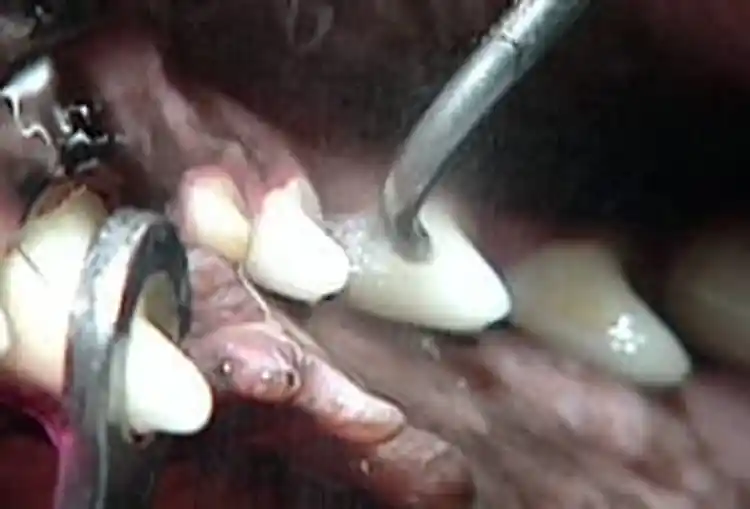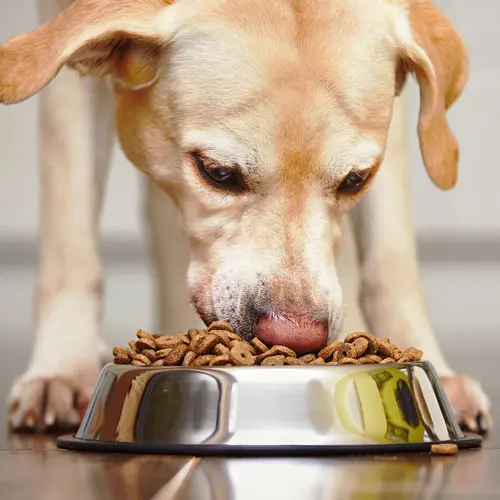Preventing Dog Dental Problems

Hide Video Transcript
Video Transcript
Narrator
It's a busy morning at Will Draper's Village Vets in Decatur, GA. Of the six surgeries planned, four are for dental work. Will Draper, DVM
Dental disease is the number one thing we see over anything else here; skin diseases, gastrointestinal diseases, surgical issues. Vet in the operating room
The disease will work up the tooth root. Will Draper, DVM
Dental disease is number one. Vet in the operating room
And cause the tooth root to be loose and diseased. Will Draper, DVM
Dog's teeth and human teeth are basically the same; dentin, enamel. Ideally, dogs should have their teeth brushed everyday like humans do, which is a challenge. We in the veterinarian community have to be very creative in how we teach our clients to practice home dental care. Narrator
It's always best to start dental care with a puppy, because, like this rescue mutt, not all dogs respond immediately to a home brushing program. Will Draper, DVM
Open their mouth. Touch the inner portion of the tooth. Do that for a while and see how they respond to it. Once you get them comfortable with that, You can put a finger brush on. Then you get veterinary approved toothpaste, and they have chicken flavor, they have beef flavor, they have peanut butter, they have mint. And they will see that as sort of a treat, because now they are accustomed to you sticking your finger in their mouth, and now they get a tasty treat. And you can mix it up. I mean, you might have a pet who only lets you touch the outer portion of the teeth, and then you use treats or bones or rawhide chews to complete the job. And over a period of time maybe they will trust you more and let you do it. Narrator
Vets recommend professional dental cleanings on a regular basis depending on your dog's breed, age, and diet. Smaller breed dogs, older dogs, and dogs that eat mostly wet food are most likely to need frequent cleanings. Some owners put cleanings off, afraid of the risks of anesthesia. Village Vet Dr. Stacy says that's not wise. Dr. Stacy Stacy, Village Vet Doctor
If your dog is under anesthesia every year to two years that is not increased their risk of death or have any kind of complication. I think it's the length of anesthesia and the underlying diseases that cause the biggest problem. If you wait two years, it could be a difference between a dog being under thirty minutes and a dog being under two hours. They have more dental tartar, more dental decay, and more gingivitis and more root decay. The more significant the disease, the longer they are going to be under anesthesia, the longer recovery, so definitely doing it when your vet recommends it is a good idea. And then once your vet cleans your pet's teeth, that's a great time to start your preventative care. Will Draper, DVM
It's never too late to start. You'll be surprised at how well some dogs will take to that, be they are two years or ten years of age. Narrator
For WebMD, I'm Sandee LaMotte. 
